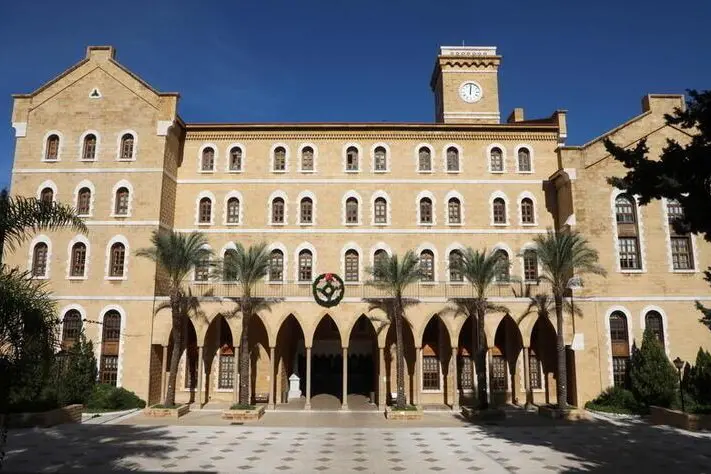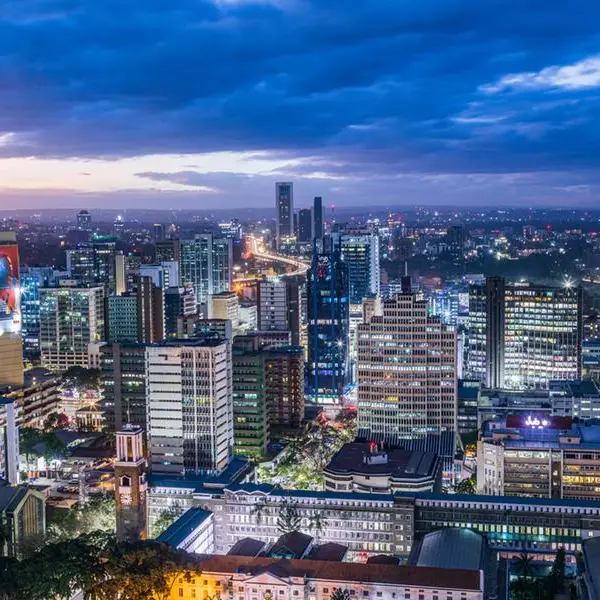PHOTO
BEIRUT: American University of Beirut will be transferring $100 million from its overseas endowment fund to assist with academics and staff salaries in light of the Lebanese pounds collapse, the universitys president said Wednesday.
Fadlo Khuri announced that over the next three years the university would be receiving funds that would enable 35 percent of staff salaries to be paid in local dollars over the next three months.
Speaking at an online media briefing, Khuri also said that later down the line, part of the salary would be paid in in fresh dollars.
At present, the majority of AUBs teaching and administrative staff are paid in Lebanese pounds at the Central Banks LL1,500 to the dollar rate. But the tumultuous black market exchange, which dropped to a record low of LL15,000 to the dollar in March, has caused salaries to lose 90 percent of their worth in real terms.
The 155-year-old universitys financial troubles were made public last summer when the American University of Beirut Medical Center had to lay off 500 staff members in the middle of a global health pandemic.
Khuri forewarned that the university was expecting to lose 15 percent of academics by the start of the next academic year.
Similar woes were revealed by Lebanese American University president Michel Mawad at an online panel discussion hosted Tuesday by the American Task Force on Lebanon, where both Khuri and Mawad spoke candidly about the concerns the two respective institutions are facing in light of the COVID-19 pandemic and the acute financial crisis that has pushed over half the countrys population below the poverty line.
Mawad spoke of the rapid impoverishment of our faculty and staff and the universitys operating budget to now be running in deficit.
The drastic rapid deterioration in the economy leading to dwindling revenues coupled with skyrocketing expenses gave us no choice but to raise our tuition, he said.
As a result of the crisis, both AUB and LAU had to make the dramatic decision last December to adopt the semi-official exchange rate of LL3,900 to the dollar for tuition fees, away from the Central Banks 1997 pegging of LL1,515 to the dollar. The adoption nearly triples the price of tuition and risks leaving only the wealthy able to access the revered American education offered by the institutions.
Over the last year citizens have been dealing with rampant inflation that has tripled the price of everyday goods. Banks have attempted to address the crisis by placing capital control measures and withdrawal limits, severely hampering citizens ability to access their money.
Both universities, who proudly uphold a reputation for excellent education standards, have since had to raise their financial aid budgets to cushion the blow for students.
LAU increased their financial aid package to cover up to 75 percent of fees, with 70 percent of students receiving such assistance. This extra aid was made possible by the universitys endowment funds, Mawad revealed.
We give instructions to our office for financial aid and registrar that no kid should go on the street if he or she cannot afford the tuition. We will do everything we can to keep every single student on our campuses, he said.
But staff members too have been impacted by the currency crash, and each institution has felt the loss of academics.
We have lost close to 15 percent of our American-trained doctors, who have gone back to the US or jobs in the MENA region, Mawad said.
Such departures will harm the quality of health care not just in Lebanon but also the region, as each universitys hospitals have long trained top physicians, cementing Lebanons past reputation as the hospital of the Middle East.
Khuri mentioned the challenges AUMBC is facing to upkeep such standards at a time when the government is unwilling or unable to reimburse hospitals for patient care and juggling the overwhelming impact of COVID-19.
Keeping the hospitals running, providing world class care, American board certified physicians, world class physicians and faculty here, while providing patient care has become a priority, he said.
Students have been dealing with a toxic mix of anxieties stemming from a year of multiple crises in Lebanon. One factor is the transfer of all classes online as a consequence of the COVID-19 pandemic, which has left students feeling let down by the quality of teaching and value for money.
Khuri revealed that he hoped AUB would return to face-to-face teaching from September, but only if teachers and students have received a vaccine against COVID-19.
Lebanon is seven weeks into its vaccination campaign, but at the current rate those of the younger generation will not be receiving jabs until later in the year. There have been reports that AUB and LAU would orchestrate their own vaccine program for staff, students, and their families to speed up a reopening.
This is still on the cards for AUB dependent on how many are vaccinated by the summer through the governments national campaign, Khuri disclosed.
Copyright 2021, The Daily Star. All rights reserved. Provided by SyndiGate Media Inc. (Syndigate.info).





















